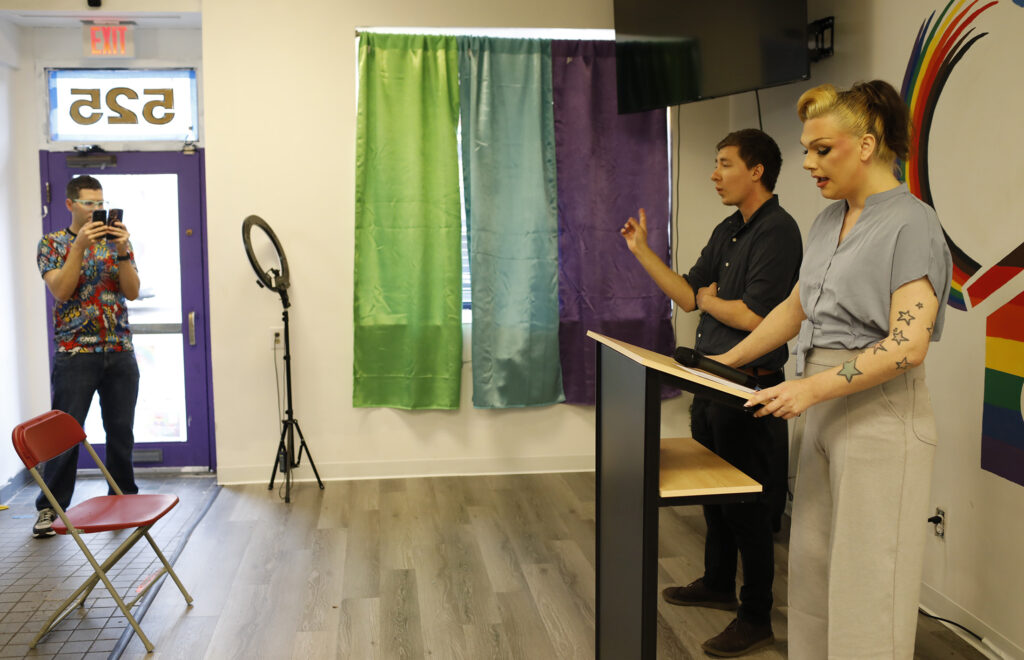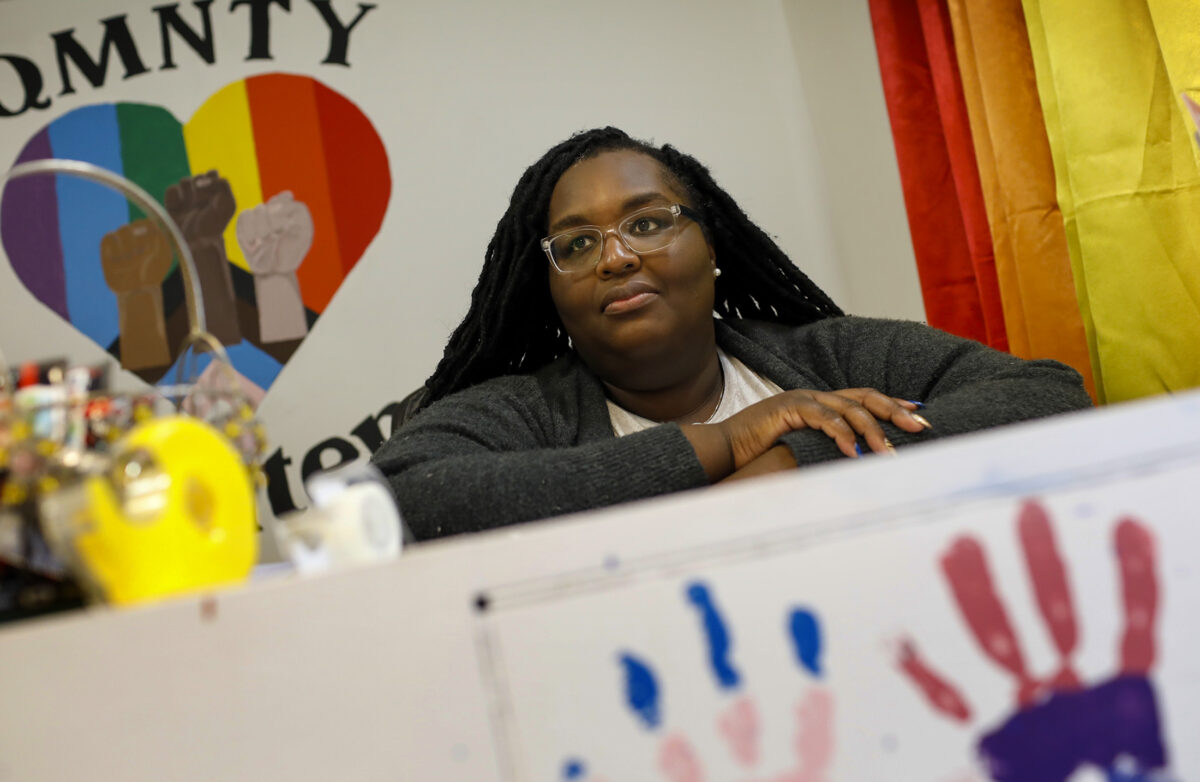It took less than five minutes for a discussion about the challenges of living as a transgender person to land on tragedy. That’s when Dena Stanley reached for her phone and scrolled through a social media site. She held out her phone to show the post she was looking for.
“Today we laid out sister Angel Naira aka B to rest,” the post read. Naira, a 36-year-old trans woman, was shot to death in her Aliquippa apartment in 2021. She was one of five Black Pittsburgh-area trans women killed in the past two years, Stanley noted.
Such violence undergirds Stanley’s opposition to upcoming events at the University of Pittsburgh featuring conservative speakers who’ve made comments considered transphobic by those in the trans community.
“This is not about feelings, this is about life,” said Stanley, a Black trans woman. Attendees will be “amped up after leaving those seminars or debates or whatever they’re calling them. They’re going to be pumped up to come out to harm us.”
Tonight, Pitt’s chapter of the right-wing group Turning Point USA hosts conservative podcaster Cabot Phillips. On Monday, the organization brings in former college swimmer Riley Gaines, an outspoken critic of transgender women competing in women’s sports.
On April 18, transgender rights will be the focus of a debate, organized by Pitt’s College Republicans and the Intercollegiate Studies Institute, between trans activist Deirdre McCloskey and right-wing commentator Michael Knowles. Knowles said at the Conservative Political Action Conference in early March that “transgenderism must be eradicated from public life entirely.” Afterward, he backtracked, saying his comments targeted a set of beliefs, not a call to harm trans people.
Pitt is facing heat over these student-sponsored events, but the university says registered student organizations have a right to invite whomever they want, even highly provocative speakers, and that it’s not the university’s role to decide who is acceptable.
To Stanley, the controversy isn’t about free speech, it’s about the threat such events pose to vulnerable people.
“It’s going to affect Black trans folks, especially Black trans women, more than anybody because we are at the bottom of the barrel,” she said. Stanley described trans women as “triple marginalized” because they identify as Black, trans and female.
“We’re always the target, always left out of everything,” she said. “We get attacked from all sides. We’re displaced from our homes, we are fired from our jobs, if we have them. We’re demonized for doing survival sex work, when often it’s the only work we can find. A lot of times we’re not treated with dignity and respect in the health care system.”
Stanley heads Trans YOUniting, an organization that provides resources to Pittsburgh’s trans community. Trans YOUth is part of a coalition speaking out against the upcoming events at Pitt and what trans activist Piper Garloch called the “ignorance and negligence of the university and students who bring speakers who harm, violate and deny the existence of the trans community.”

At a Thursday morning news conference, Garloch described the coalition as a collective of Black-led trans, nonbinary and queer community leaders and activists, as well as Pitt students and alumni and other community supporters.
The group demanded the university issue a public apology for “being complicit in bringing transphobic events to the community” and issued a set of demands that included the creation of programming to teach Pitt staff and faculty skills necessary to serve the trans community. Such programming would be mandatory and led by trans students and community members.
Garloch called on supporters to attend a rally for trans students at the Schenley Oval in Oakland on Monday — the same day as the event featuring Riley Gaines. That rally is scheduled to begin at 3:30.
“Every day that we stand idly by, the higher the likelihood that harm will come to the trans and nonbinary community,” Garloch said.
Much of the current anti-trans rhetoric comes from politicians, Stanley noted. The Human Rights Campaign has tracked 340 anti-LGBTQ+ bills introduced at the state level throughout the U.S. in 2023. Nearly half of those bills specifically target the rights of transgender people.
“Mentally, it weighs heavy on you,” Stanley said. In some cases, “it makes you not even want to live anymore. These are people who are just trying to live authentically, and they cannot do that.”
Monday’s rally coincides with Pitt’s celebration of Pride Week.
“This is a celebratory time for the Pitt Pride folks, the queer community and the trans community there,” she said, “but instead we have to fight what these other folks are doing, bringing these harmful people into the community. It’s going to have a negative effect on the people there. Somebody’s going to get hurt.”
Related: “Community voices: On being transgender in America this week.”
Steve is a photojournalist and writer for the Pittsburgh Post-Gazette, but he is currently on strike and working as a Union Progress co-editor. Reach him at smellon@unionprogress.com.



